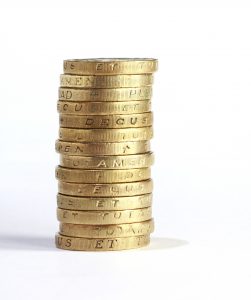 The UK Government levy on sugary drinks producers started in April 2018. This will potentially influence the cost of a large range of non-alcoholic beverages. Our new study (published 26th April 2018) looks at how increasing the price of snack foods might compare in impact. We found that a 10% increase in the price of sweet snacks could lead to a similar reduction in consumer demand as the same price increase for sugar-sweetened drinks. However, such a price increase is estimated to have knock-on effects that may further reduce purchases of sugar-sweetened drinks and other snacks. Furthermore, as sweet snacks provide twice as much sugar in the diet as sugar-sweetened drinks, the overall reduction on sugar intake could be even greater than that observed with price increases for sugar-sweetened drinks.
The UK Government levy on sugary drinks producers started in April 2018. This will potentially influence the cost of a large range of non-alcoholic beverages. Our new study (published 26th April 2018) looks at how increasing the price of snack foods might compare in impact. We found that a 10% increase in the price of sweet snacks could lead to a similar reduction in consumer demand as the same price increase for sugar-sweetened drinks. However, such a price increase is estimated to have knock-on effects that may further reduce purchases of sugar-sweetened drinks and other snacks. Furthermore, as sweet snacks provide twice as much sugar in the diet as sugar-sweetened drinks, the overall reduction on sugar intake could be even greater than that observed with price increases for sugar-sweetened drinks.
Are sweet snacks more sensitive to price increases than sugar-sweetened beverages: analysis of British food purchase data. (2018). Smith RD, Cornelsen L, Quirmbach D, Jebb SA, Marteau TM. BMJ open.
[altmetric doi="" float="left" popover="left" style="box-shadow: 0 1px 4px rgba(0, 0, 0, 0.2);" class="someclass" type="1"]

